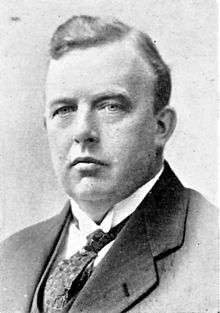1949 Norwegian parliamentary election
Parliamentary elections were held in Norway on 10 October 1949.[1] The result was a victory for the Labour Party, which won 85 of the 150 seats in the Storting.
| |||||||||||||||||||||||||||||||||||||||||||||||||||||||||||||
All 150 seats in the Norwegian Parliament 76 seats were needed for a majority | |||||||||||||||||||||||||||||||||||||||||||||||||||||||||||||
|---|---|---|---|---|---|---|---|---|---|---|---|---|---|---|---|---|---|---|---|---|---|---|---|---|---|---|---|---|---|---|---|---|---|---|---|---|---|---|---|---|---|---|---|---|---|---|---|---|---|---|---|---|---|---|---|---|---|---|---|---|---|
| |||||||||||||||||||||||||||||||||||||||||||||||||||||||||||||
| |||||||||||||||||||||||||||||||||||||||||||||||||||||||||||||
Results
 | ||||
|---|---|---|---|---|
| Party | Votes | % | Seats | +/– |
| Labour Party | 803,471 | 45.7 | 85 | +9 |
| Conservative Party | 279,790 | 15.9 | 23 | –2 |
| Liberal Party | 218,866 | 12.4 | 21 | +1 |
| Christian People's Party | 147,068 | 8.4 | 9 | +1 |
| Communist Party | 107,722 | 5.8 | 0 | –11 |
| Farmers' Party | 85,418 | 4.9 | 12 | +2 |
| Farmers-Conservatives-Liberals | 45,311 | 2.6 | [a] | – |
| Farmers-Conservatives | 35,860 | 2.0 | [b] | – |
| Farmers-Liberals | 22,408 | 1.3 | [c] | – |
| Society Party | 13,088 | 0.7 | 0 | New |
| Christians-Liberals | 4,334 | 0.2 | [d] | – |
| Wild votes | 30 | 0.0 | – | – |
| Invalid/blank votes | 12,531 | – | – | – |
| Total | 1,770,897 | 100 | 150 | 0 |
| Registered voters/turnout | 2,159,065 | 82.0 | – | – |
| Source: Nohlen & Stöver | ||||
a The joint list of the Farmers' Party, Conservative Party and Liberal Party won four seats, two taken by the Conservative Party and two by the Farmers' Party.[2]
b The joint list of the Farmers' Party and Conservative Party won three seats, all taken by the Farmers' Party.[2]
c The joint list of the Farmers' Party and Liberal Party won two seats, with both parties taking one each.[2]
d The joint list of the Liberal Party and Christian People's Party won no seats.[2]
gollark: It worked. Although with pastebin being bad I now have a build process and such.
gollark: I developed potatOS without any testing before release for YEARS.
gollark: Pretty apiological.
gollark: bees.
gollark: …
References
- Dieter Nohlen & Philip Stöver (2010) Elections in Europe: A data handbook, p1438 ISBN 978-3-8329-5609-7
- Nohlen & Stöver, p1459
This article is issued from Wikipedia. The text is licensed under Creative Commons - Attribution - Sharealike. Additional terms may apply for the media files.


